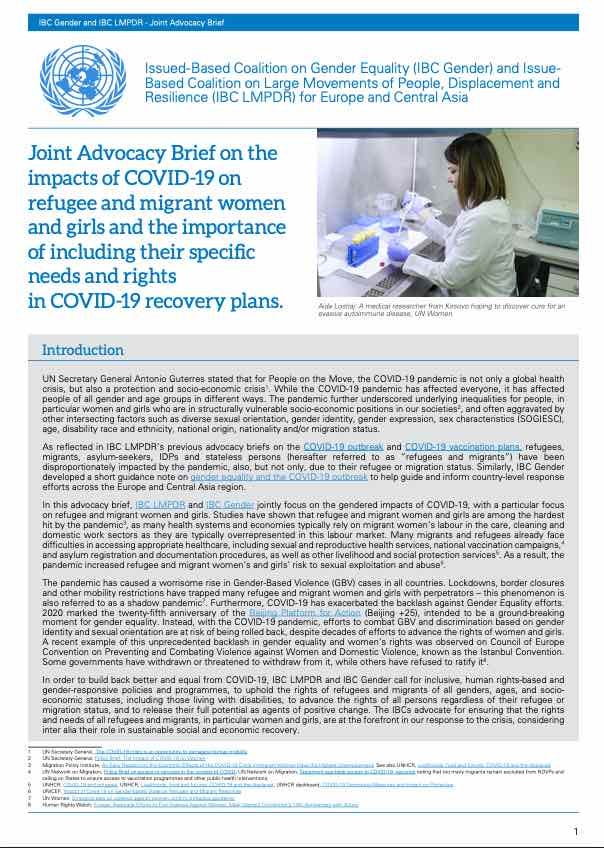
Joint Advocacy Brief on the impacts of COVID-19 on refugee and migrant women and girls and the importance of including their specific needs and rights in COVID-19 recovery plans

Studies have shown that refugee and migrant women and girls are among the hardest hit by the pandemic, as many health systems and economies typically rely on migrant women’s labour in the care, cleaning and domestic work sectors as they are typically overrepresented in this labour market. Many migrants and refugees already face difficulties in accessing appropriate healthcare, including sexual and reproductive health services, national vaccination campaigns, and asylum registration and documentation procedures, as well as other livelihood and social protection services. As a result, the pandemic increased refugee and migrant women’s and girls’ risk to sexual exploitation and abuse.
This advocacy brief presents the impacts of COVID-19 on refugee and migrant women and girls and the importance of including their specific needs and rights in COVID-19 recovery plans. Jointly published by Issue-Based Coalitions on Gender Equality (IBC- GE) and Large Movements of People, Displacement and Resilience (IBC-LMPDR) for Europe and Central Asia, the brief offers solid recommendations on socio-economic recovery; social protection, education and healthcare; and gender-based violence including domestic violence to build back better and equal from COVID-19.
IBC-LMPDR and IBC-GE call for inclusive, human rights-based andgender-responsive policies and programmes, to uphold the rights of refugees and migrants of all genders, ages, and socioeconomic statuses, including those living with disabilities, to advance the rights of all persons regardless of their refugee or migration status, and to release their full potential as agents of positive change.